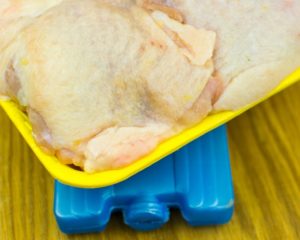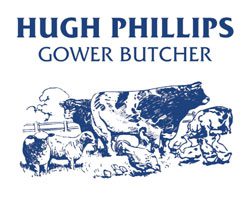 We’re not complaining but the warm summer weather we’ve been enjoying this week is the perfect environment for bacteria to grow. So, in these exceptional temperatures, it’s especially important to keep food safe until it’s ready to be eaten: and that includes keeping hot foods hot and cold foods cold.
We’re not complaining but the warm summer weather we’ve been enjoying this week is the perfect environment for bacteria to grow. So, in these exceptional temperatures, it’s especially important to keep food safe until it’s ready to be eaten: and that includes keeping hot foods hot and cold foods cold.
We’ve put together some general guidelines for you; they’re mostly just common sense but you might find these tips helpful if you are concerned about the way you normally store your food. And if you work in any type of catering or retail environment, you should make sure your staff are aware of the dangers of rapid bacteria growth and contamination from insects during the summer season, and particularly for outdoor events.
Essential standards for food safety
Here are some simple rules when it comes to essential food safety standards:
- Leave chilled food in the fridge for as long as possible before exposing it to the outdoor climate.
- Protect food from contamination by insects, birds, animals and people by keeping it covered whenever possible.
- Wash all salads and fruit thoroughly.
Temperature regulations to keep food safe
Certain foods must be kept at the right temperature to keep them safe. These include ready-to-eat foods, cooked foods, smoked meat or fish and certain dairy products.
If these foods are not kept at the right temperature, harmful bacteria could grow or toxins (that’s poisons) could form in the food and make your family or customers ill. Make sure you stick to these rules:
- Hot food must be kept above 63°C (145°F)
- Chilled food must be kept at or below 8°C (46°F)
- Hot food can be kept below 63°C (145°F) for a maximum of two hours
- Chilled food can be kept above 8°C (46°F) for a maximum of four hours
You must not exceed these times. After food has been out of temperature controls for one of these time periods, it must either be thrown away or cooled as quickly as possible, and then chilled in final use.
In the UK it’s an offence to keep food at temperatures that would cause a risk to health.
Safe summer barbecuing tips
You’ve probably been grilling on your barbecue more often than usual and you should also know how to cook your food thoroughly because the biggest risk of food poisoning comes from raw and undercooked meat. Follow these tips to enjoy a safe summer of barbecuing:
- Light the barbecue well in advance of cooking, making sure you use enough charcoal.
- Wait until the charcoal is glowing red, with a powdery grey surface before you start to cook.
- Make sure frozen food is properly thawed before you cook it.
- Once you’re cooking, turn the food regularly and move it around the barbecue to cook it evenly.
- Check that the centre is piping hot.
- Don’t assume that meat is cooked properly just because the outside is charred.
- Always make sure that you cook chicken, pork, burgers, sausages and kebabs until they’re piping hot all the way through.
- Make sure none of the meat is pink and any juices run clear.
- If you’re cooking large amounts, start cooking raw meat on one barbecue (or in the oven)and then move it to another when partially cooked? That will reduce the risk of cross-contamination.
- If you’re in a hurry, pre-cook meat then finish it in the BBQ for a fuller flavour. Don’t forget: If you reheat food on the barbecue, it must be piping hot all the way through before you serve it.
- Don’t put raw meat products next to cooked or partially cooked meat on the barbecue.
- Don’t add sauce or marinade to cooked food if it’s already been used with raw meat.
Hugh Phillips Gower Butcher
At Hugh Phillips Gower Butchers we have robust processes in place at our farm, abattoir and Swansea Market shops to ensure we keep our meet at the correct temperatures at all times.
All meat orders that are purchased from our online store are packaged and despatched in Woolcool, a multi award winning insulated packaging that is more eco-friendly than conventionally insulated packaging such as polystyrene as it is entirely biodegradable. Importantly, it’s insulation properties are also more effective as Woolcool keeps chilled contents consistently colder for longer than polystyrene and with much fewer ice sheets.


